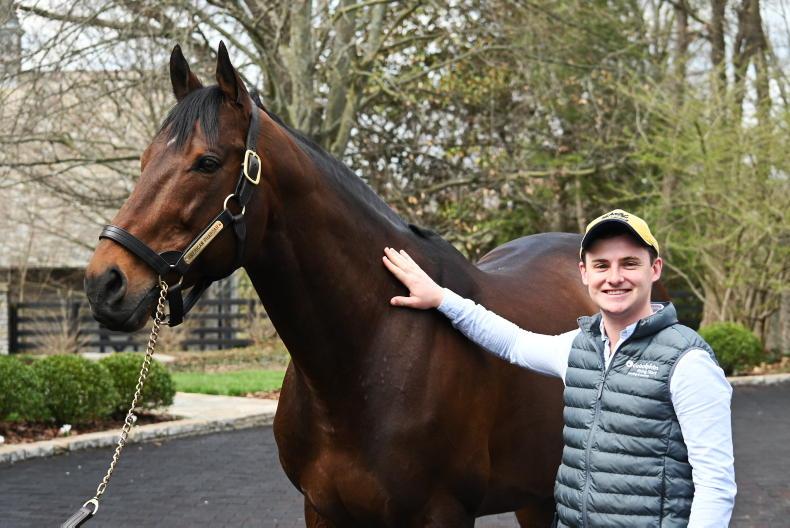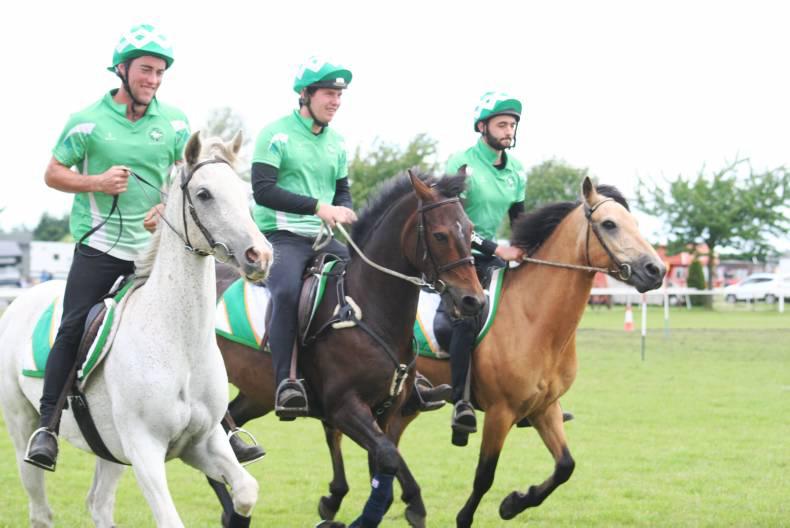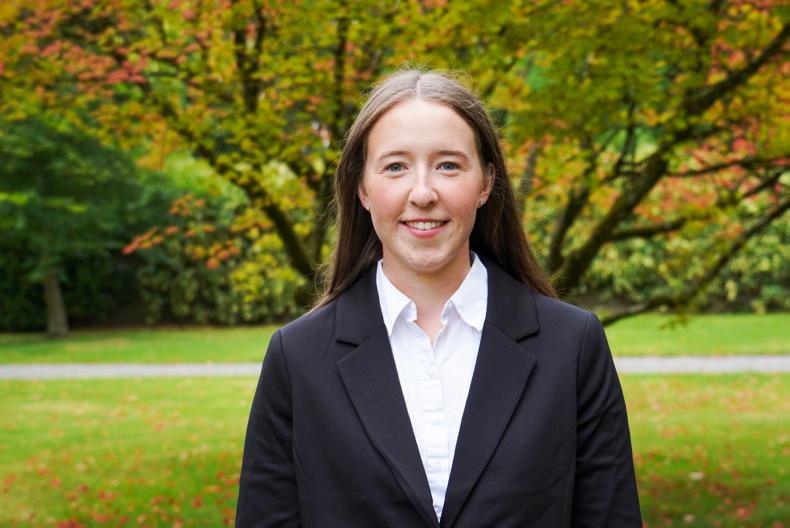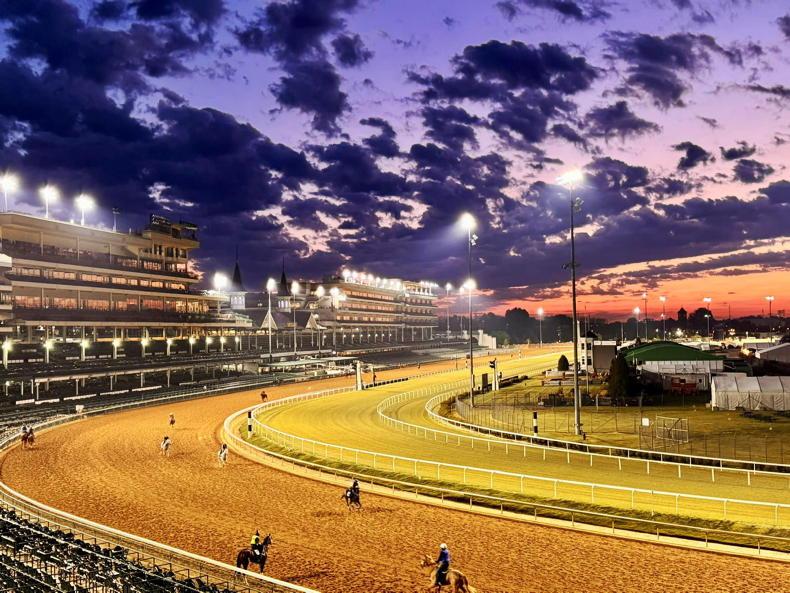FOR a sport so steeped in tradition, it is rare for a new innovation to come along that genuinely reshapes the landscape. Yet, over the past two decades, the Godolphin Flying Start (GFS) programme has done just that.
This has not happened through spectacle or lavish publicity, but by quietly and consistently producing a generation of global leaders in thoroughbred racing. What began as a generous and bold vision to professionalise and internationalise the bloodstock industry has matured into one of its most powerful engines of progress.
Godolphin Flying Start was the brainchild of Sheikh Mohammed, the ruler of Dubai and founder of the Godolphin operation.
“Talent exists everywhere, but opportunity does not” is a quote often attributed to Sheikh Mohammed. With this belief in mind, he commissioned a programme that would help ambitious young people rise into positions of leadership.
In this attempt to develop leaders for the sport, Sheikh Mohammed envisioned a fully-funded, intensive two-year course that would focus on horsemanship, develop business acumen and leadership, with the aim of developing leaders and innovators for the long-term benefit of the horse industry. The success of the programme is a testament to the Maktoum family’s commitment to the sport and will stand as a lasting legacy of their deep passion for the thoroughbred industry.
Tasked with fulfilling this vision, Clodagh Kavanagh - supported by a dedicated team - has successfully managed the programme since the first intake of 12 trainees were selected in 2003. Since then, the course has produced 248 graduates from 19 different nationalities. Over 50% of these graduates now hold management positions or run their own businesses within the racing and breeding industries. It is safe to say there is real proof of concept and that Sheikh Mohammed’s vision has come to fruition.
As a recent graduate, I wish to reflect on the global impact of the course. There has arguably never been a better time to be a trainee on the GFS programme. My classmates and I were fortunate to benefit from the success of graduates and the worldwide reputation they have built for the programme.
Globalisation
It is clear that GFS has not only transformed individual careers, but played a crucial role in modernising the global racing ecosystem. The 248 graduates are currently based in 18 countries, with many working in the major racing jurisdictions of North America, Australia, Hong Kong, Japan, the Middle East, and Europe. One of my strongest observations throughout the course has been just how increasingly interconnected the racing industry is becoming.
This global integration is no longer an abstract concept. It is tangible and immediate. As trainees, we saw it first-hand: agents in Australia buying yearlings for trainers in California; owners in Hong Kong sourcing tried horses from Europe; European-bred mares being covered in Kentucky and foaling down in Australia.
These cross-border exchanges are becoming standard practice and, more often than not, a GFS graduate is playing a key role - whether as a bloodstock agent, racing manager, syndicate advisor or operations director. Last week, a Frankel two-year-old filly (Gran Ventura), who was bred on southern hemisphere time, then purchased as a yearling in Australia before being exported to Europe, was declared to run in a novice race at Newmarket. This highlights how the racing world has truly become a smaller place.
The relationships formed during the programme tend to seep into professional life. We have seen GFS alumni partnering on deals, recruiting one another into new ventures, and supporting each other across continents. That’s not just good networking - it’s a living infrastructure for a more connected industry.
The world of racing is increasingly defined by its internationalism - in its horses, its investment flows, its fanbases, and its major events. From the Dubai World Cup to the Breeders’ Cup, from Royal Ascot to the Melbourne Cup carnival, the most important fixtures on the calendar are no longer national - they are global stages, attracting worldwide attention. Flying Start graduates are increasingly behind the scenes, helping to build and sustain those events, shaping the way the sport presents itself.
Irish abroad
Irish graduates are making a real impact abroad. With the opportunity to travel, forge new connections, and expand their professional network, many have gone on to lead major international projects and operations.
Some notable graduate career paths include Kilkenny-born Stephen O’Connor (2013 graduate), who is now director of Sir Owen Glenn’s Go Bloodstock. This is a leading Australian ownership group and a key investor in fellow GFS graduate Henry Field’s (2005) Newgate Farm colts syndicate.
Limerick native Tim Donworth (2018) is fast becoming one of France’s most upwardly mobile trainers and has leveraged his global network to attract major American owners, such as LNJ Foxwoods and JR Ranch into his stable.
Kildare man Gerry Duffy (2007) had long been flying the Irish flag working as the operations manager for Godolphin in Lexington, before being headhunted to become CEO of Modon Equestrian - a move that has since taken him to Abu Dhabi.
More recently, David O’Farrell (2024) from Dublin, secured an international relations role with the Dubai Racing Club - a move directly influenced by the connections and experiences gained during his time on the Dubai phase of the course.
My experience
Over the past two years, GFS has taken me to eight countries across four continents. Every jurisdiction offered unique insights, and I have taken something valuable from each phase of the programme.
During our time in the United States, I completed a six-week placement with the bloodstock team at Keeneland. This coincided with the inspection period for the Keeneland September Sale - the largest yearling sale in the world. It was an incredible experience that allowed me to visit over 100 farms across Kentucky and inspect close to 1,000 yearlings.
The sheer scale and professionalism of the operation were eye-opening. It gave me a front seat view of the planning and choreography required to manage such a world-class sales company.
From America, we moved on to Australia, where the vibrancy and commercial dynamism of the industry were immediately apparent. One of the standout experiences for me was shadowing the Yulong team for two weeks at the Magic Millions Gold Coast Sale.
The atmosphere was electric, and the energy around the sales ring was palpable. The old adage, ‘You have to win in the ring before you can win on the track’ was clearly on display and this was reflected in the high level of speculative buying. Trainers and syndicators routinely purchase horses on spec.
The selling of the shares in these yearlings comes later - a bold but often effective strategy. This approach has helped fuel a remarkable statistic: one in every 191 Australians owns a share in a racehorse. Reflecting the global nature of the industry, the top-priced yearling at the sale was purchased by the UK owner Phil Cunningham of Rebel Racing.
In Hong Kong, I undertook another six-week placement, this time within the racing commercial department of the Hong Kong Jockey Club. It was a unique and enriching experience - an up-close involvement with best-in-class practice within a vertically integrated business model, where every department is aligned and working in unison toward the betterment of the overall product.
My placement coincided with the Hong Kong International Races, which welcomed 27 overseas horses and their connections. To work with the management of this kind of global event from behind the scenes - from planning logistics to international liaison - gave me a deep appreciation for the coordination and excellence required to deliver at that level.
My story mirrors hundreds of others, collectively forming the first-hand accounts that show how the course is influencing career trajectories and knitting the world’s racing centres into an ever-tighter tapestry.


 This is a subscriber-only article
This is a subscriber-only article
 It looks like you're browsing in private mode
It looks like you're browsing in private mode











SHARING OPTIONS: